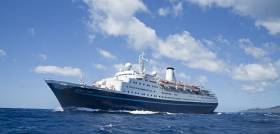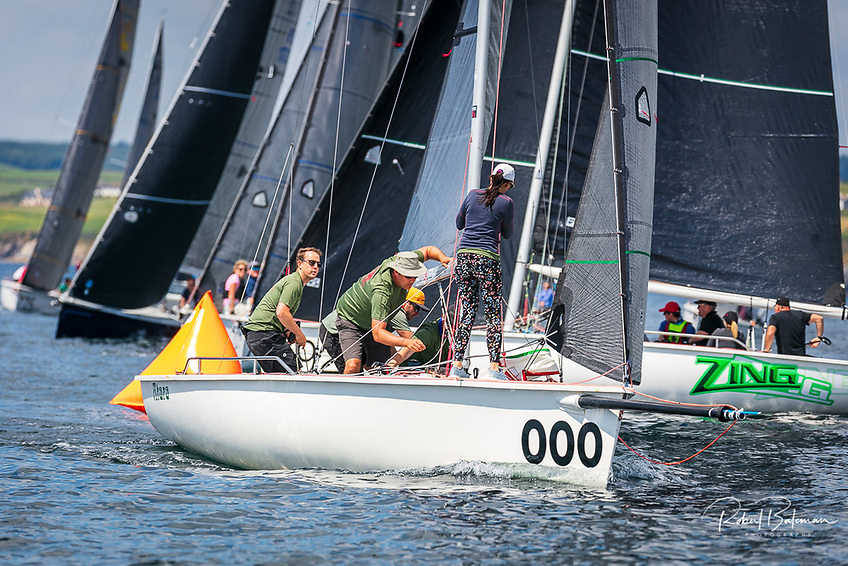Displaying items by tag: Classic 'liner' cruiseship
CMV’s Classic Ocean Going Lady Calls to the Capital
#ClassicCaller – Cruise & Maritime Voyages Marco Polo, a classic cruiseship that became the first ship to establish the UK operator almost a decade ago, made a call to Dublin Port today, writes Jehan Ashmore.
The call of the 820-passenger Marco Polo now in its 52 year is in complete contrast to the 2004 built giant Caribbean Princess which called to the capital at the weekend. The 112,894 gross tonnage ship however was in the media spotlight last year (see report) in regards to a 'magic pipe'.
As for Marco Polo the ship departed last week from Avonmouth near Bristol. The seven-nights Scottish Highlights & Emerald Isle cruise last port of call was Tobermory on the Isle of Mull.
Marco Polo became CMV’s first ship in 2009 and using embarkation ports in the UK among them Tilbury, London Cruise Terminal. This season she is mainly based out of Avonmouth, Bristol and Hull. Afloat has identified among its cruises is a one-night taster in September. This is to be from Belfast to Liverpool.
The career of this classic former Soviet era liner dating to 1965 was incorrectly reported by Ships Monthly to be up for sale and be withdrawn in 2018. The publication added that Marco Polo is to remain in service at least to the end of next year as according to the operator’s advertised cruise roster.
Afloat has also examined Marco Polo’s season next year. Among the season is a five night Emerald Isle & Isles of Scilly. This cruise based out of Cardiff is to include calls to Dublin, Cobh and Glengariff, Bantry Bay from where the lady of the sea was observed from the shoreline almost a decade ago. This saw tenders kept busy bringing cruise-goers ashore from the anchored ship.
Asides her rare longetivity, Marco Polo is notably the sole survivor of five sisters built of the so called ‘Authors’ class, having been built in Wismar, East Germany. Launched as Alexandr Pushkin, the liner operated Baltic Shipping Company’s Leningrad—Helsinki—Copenhagen—London (Tilbury)—Quebec City—Montreal, Canada service.
This liner trade however ceased within a decade. The ship was sold but began a new career cruising that included operating in the Far East and Australia.





























































